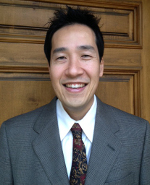Physician burnout is on the rise. How can gastroenterologists combat the demands of practicing medicine and remain satisfied and engaged with their work?
Ask a Gastroenterologist is a weekly series of questions posed to GI physicians around the country on business and clinical issues affecting the field of gastroenterology. We invite all gastroenterologists to submit responses. Next week's question: Do you think a new technology will ever be able to replace colonoscopy?
Please submit responses to Carrie Pallardy at cpallardy@beckershealthcare.com by Thursday, August 28, at 5 p.m. CST.
 Patrick Takahashi, MD, CMIO and Chief of Gastroenterology Section of St. Vincent Medical Center (Los Angeles): Burnout is a difficult issue to overcome in the field of gastroenterology. Gastroenterology is not only a taxing field mentally, but has physical strains as well, as it is procedural based, and can result in a tremendous amount of fatigue relating to eyes, hands and core muscles of the trunk. With reimbursements continuing to drop, the pressure to see more patients is reaching a zenith, and this adds an extra burden to the practitioner.
Patrick Takahashi, MD, CMIO and Chief of Gastroenterology Section of St. Vincent Medical Center (Los Angeles): Burnout is a difficult issue to overcome in the field of gastroenterology. Gastroenterology is not only a taxing field mentally, but has physical strains as well, as it is procedural based, and can result in a tremendous amount of fatigue relating to eyes, hands and core muscles of the trunk. With reimbursements continuing to drop, the pressure to see more patients is reaching a zenith, and this adds an extra burden to the practitioner.
The burnout phenomenon can be addressed in a multitude of ways. Knowing one's limits in terms of scheduling enough time to get from office, to surgery center, to hospital is paramount to providing a sufficient buffer as to avoid both mental and physical strain. An extra 15 to 20 minutes should not be underestimated when it comes to one's wellbeing. In addition, smart scheduling by alternating upper and lower endoscopies when possible can help to alleviate operator fatigue, as opposed to multiple colonoscopies back-to-back-to-back.
Consideration should be made to alleviating the load in other ways, such as with physician-assistant driven practices in the office, versus hiring a new partner to share call with. Partnering with independent gastroenterologists in a "call panel" can help provide time, which is ever so important to the recovery period for a physician. Offloading inpatients to other gastroenterologists is another viable option, especially if one's office practice is thriving. Hospital-based gastroenterologists will continue to become a growing cog in the field as it will provide revenue for themselves and efficiency for office-based gastroenterologists.
More articles on gastroenterology:
AMGA: Gastroenterologist compensation rises 9%
12 endoscopy centers making the news
New ACG clinical guidelines: Focal liver lesions
Ask a Gastroenterologist is a weekly series of questions posed to GI physicians around the country on business and clinical issues affecting the field of gastroenterology. We invite all gastroenterologists to submit responses. Next week's question: Do you think a new technology will ever be able to replace colonoscopy?
Please submit responses to Carrie Pallardy at cpallardy@beckershealthcare.com by Thursday, August 28, at 5 p.m. CST.
 Patrick Takahashi, MD, CMIO and Chief of Gastroenterology Section of St. Vincent Medical Center (Los Angeles): Burnout is a difficult issue to overcome in the field of gastroenterology. Gastroenterology is not only a taxing field mentally, but has physical strains as well, as it is procedural based, and can result in a tremendous amount of fatigue relating to eyes, hands and core muscles of the trunk. With reimbursements continuing to drop, the pressure to see more patients is reaching a zenith, and this adds an extra burden to the practitioner.
Patrick Takahashi, MD, CMIO and Chief of Gastroenterology Section of St. Vincent Medical Center (Los Angeles): Burnout is a difficult issue to overcome in the field of gastroenterology. Gastroenterology is not only a taxing field mentally, but has physical strains as well, as it is procedural based, and can result in a tremendous amount of fatigue relating to eyes, hands and core muscles of the trunk. With reimbursements continuing to drop, the pressure to see more patients is reaching a zenith, and this adds an extra burden to the practitioner. The burnout phenomenon can be addressed in a multitude of ways. Knowing one's limits in terms of scheduling enough time to get from office, to surgery center, to hospital is paramount to providing a sufficient buffer as to avoid both mental and physical strain. An extra 15 to 20 minutes should not be underestimated when it comes to one's wellbeing. In addition, smart scheduling by alternating upper and lower endoscopies when possible can help to alleviate operator fatigue, as opposed to multiple colonoscopies back-to-back-to-back.
Consideration should be made to alleviating the load in other ways, such as with physician-assistant driven practices in the office, versus hiring a new partner to share call with. Partnering with independent gastroenterologists in a "call panel" can help provide time, which is ever so important to the recovery period for a physician. Offloading inpatients to other gastroenterologists is another viable option, especially if one's office practice is thriving. Hospital-based gastroenterologists will continue to become a growing cog in the field as it will provide revenue for themselves and efficiency for office-based gastroenterologists.
More articles on gastroenterology:
AMGA: Gastroenterologist compensation rises 9%
12 endoscopy centers making the news
New ACG clinical guidelines: Focal liver lesions


